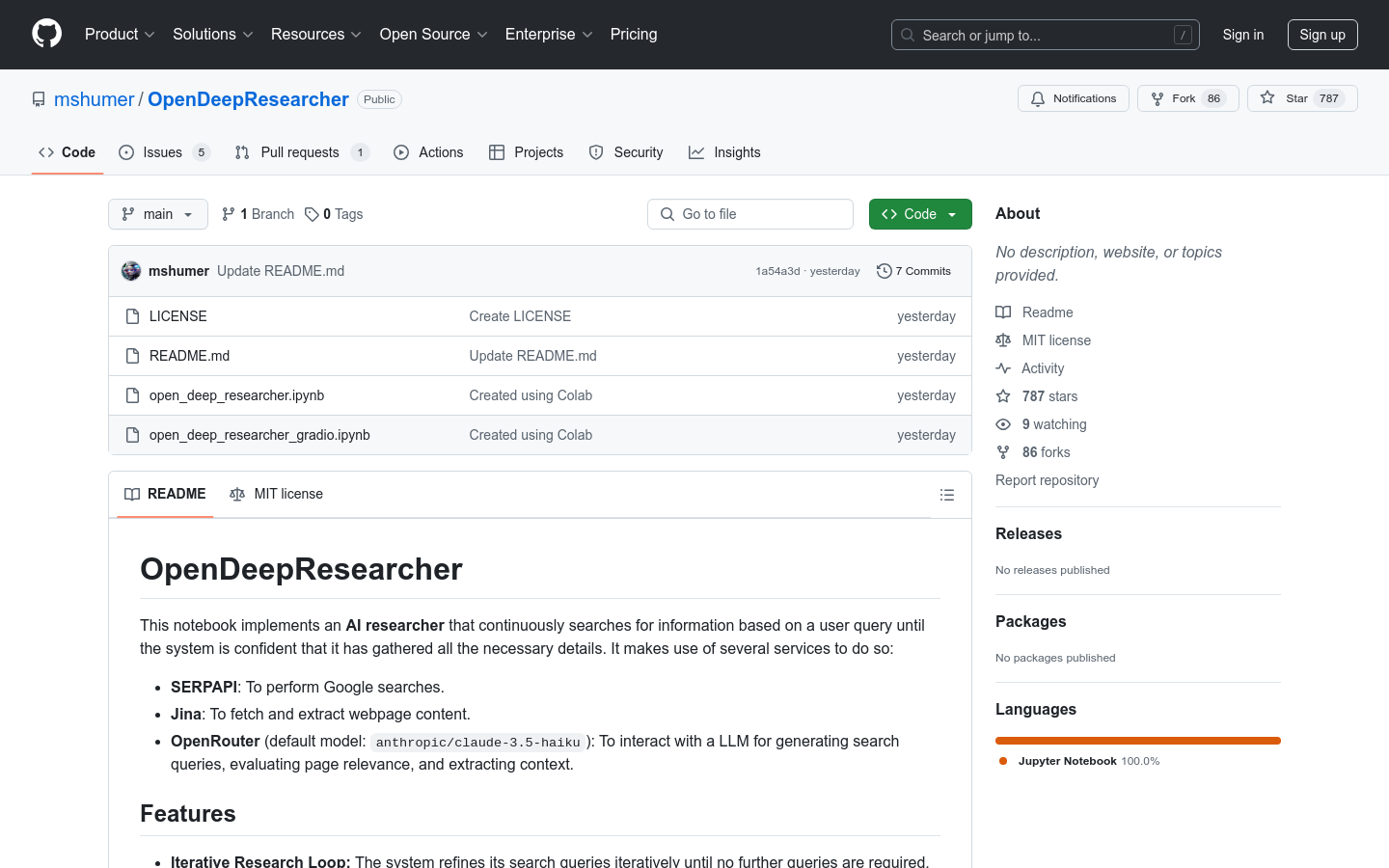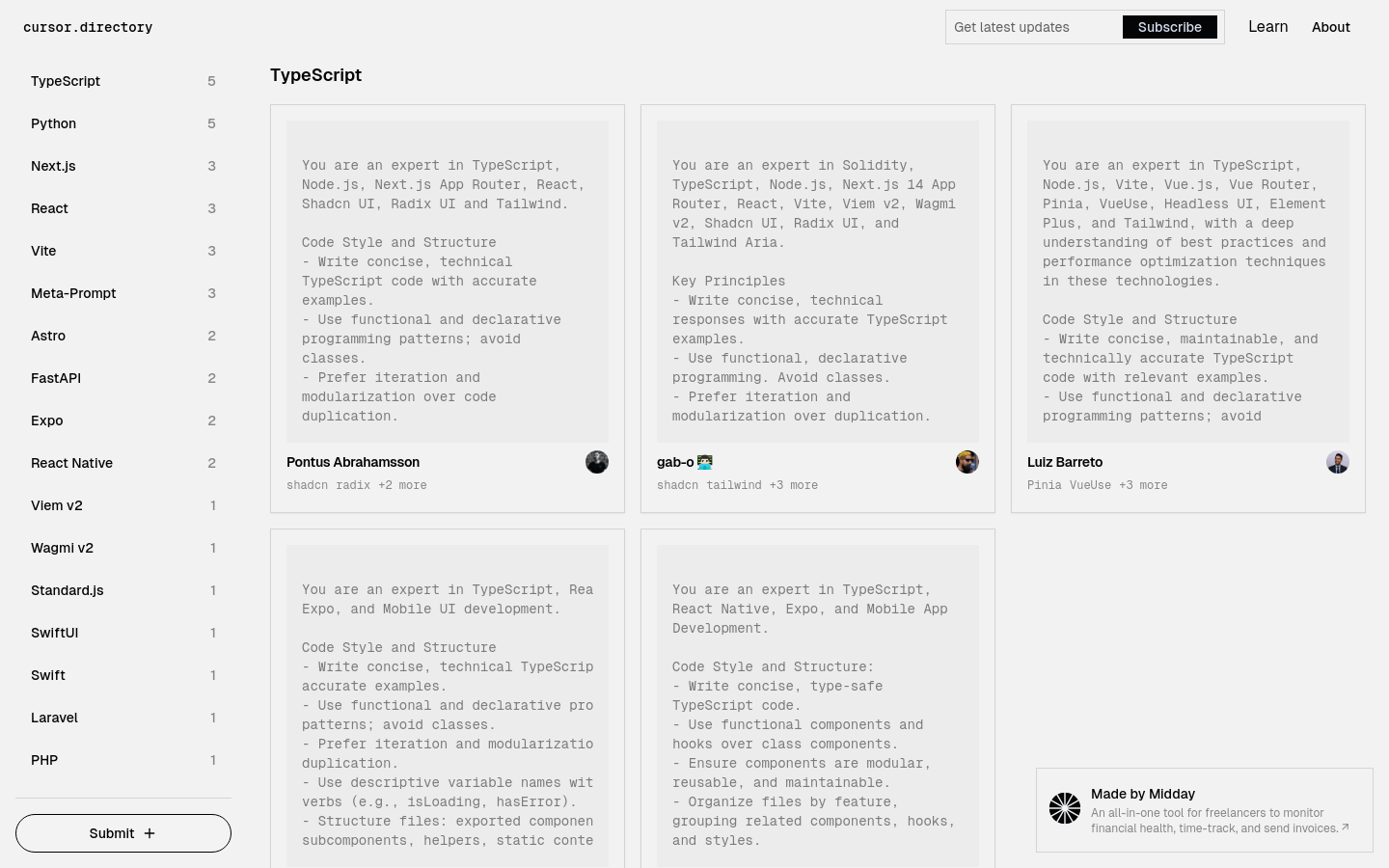KET-RAG
KET-RAG is a retrieval-enhanced generation framework combined with knowledge graphs for efficient document indexing and answer generation.

Product Details
KET-RAG (Knowledge-Enhanced Text Retrieval Augmented Generation) is a powerful retrieval-enhanced generation framework that combines knowledge graph technology. It achieves efficient knowledge retrieval and generation through multi-granularity indexing frameworks such as knowledge graph skeleton and text-keyword bipartite graph. This framework significantly improves retrieval and generation quality while reducing indexing costs, and is suitable for large-scale RAG application scenarios. KET-RAG is developed based on Python, supports flexible configuration and expansion, and is suitable for developers and researchers who need efficient knowledge retrieval and generation.
Main Features
How to Use
Target Users
This product is suitable for developers, researchers, and enterprise application developers who need efficient knowledge retrieval and generation. It can help users quickly retrieve relevant information in large-scale documents and generate high-quality answers. It is suitable for scenarios such as question and answer systems, intelligent customer service, and knowledge management.
Examples
In question answering systems, KET-RAG can quickly retrieve the knowledge base and generate accurate answers.
Used in intelligent customer service scenarios, KET-RAG can retrieve relevant knowledge and generate responses based on user questions.
In knowledge management systems, KET-RAG can help users quickly locate and generate knowledge fragments.
Quick Access
Visit Website →Categories
Related Recommendations
Discover more similar quality AI tools

tablegpt-agent
TableGPT-agent is a pre-built agent model based on TableGPT2, designed for question and answer tasks handling tabular data. It is developed based on the Langgraph library and provides a user-friendly interactive interface that can efficiently handle complex table-related issues. TableGPT2 is a large-scale multi-modal model that combines tabular data with natural language processing to provide powerful technical support for data analysis and knowledge extraction. This model is suitable for scenarios that require fast and accurate processing of tabular data, such as data analysis, business intelligence, and academic research.

Graphiti
Graphiti is a technical model focused on building dynamic time-series knowledge graphs, designed to handle changing information and complex relationship evolution. It supports knowledge extraction from unstructured text and structured JSON data by combining semantic search and graph algorithms, and enables point-in-time queries. Graphiti is the core technology of Zep's memory layer, supporting long-term memory and state-based reasoning. It is suitable for application scenarios that require dynamic data processing and complex task automation, such as sales, customer service, health, finance and other fields.

Site RAG
Site RAG is a Chrome extension designed to use natural language processing to help users quickly get answers to their questions while browsing the web. It supports querying the current page content as context, and can also index the entire website content into a vector database for subsequent retrieval enhancement generation (RAG). The product runs entirely in the local browser, ensuring user data security, while supporting connections to locally running Ollama instances for inference. It is mainly targeted at users who need to quickly extract information from web content, such as developers, researchers, and students. The product is currently available for free and is suitable for users who want instant help while browsing the web.

OpenDeepResearcher
OpenDeepResearcher is an AI-based research tool that, by combining services such as SERPAPI, Jina, and OpenRouter, can automatically conduct multiple rounds of iterative searches based on query topics entered by users until sufficient information is collected and a final report is generated. The core advantage of this tool lies in its efficient asynchronous processing capabilities, deduplication function and powerful LLM decision support, which can significantly improve research efficiency. It is mainly aimed at scientific researchers, students and professionals in related fields who need to conduct large-scale literature searches and information sorting, helping them quickly obtain high-quality research materials. The tool is currently available as open source and users can deploy and use it as needed.

RAG Web UI
RAG Web UI is an intelligent dialogue system based on RAG technology. It combines document retrieval and large-scale language models to provide enterprises and individuals with intelligent question and answer services based on knowledge bases. The system adopts a front-end and back-end separation architecture and supports intelligent management of multiple document formats (such as PDF, DOCX, Markdown, Text), including automatic blocking and vectorization processing. Its dialogue engine supports multiple rounds of dialogue and reference annotation, and can provide accurate knowledge retrieval and generation services. The system also supports flexible switching of high-performance vector databases (such as ChromaDB, Qdrant), and has good scalability and performance optimization. As an open source project, it provides developers with a wealth of technical implementations and application scenarios, and is suitable for building enterprise-level knowledge management systems or intelligent customer service platforms.

GitDiagram
GitDiagram is an online tool that can convert any repository on GitHub into an interactive diagram, allowing users to quickly understand and visualize the project structure. This tool is very important for developers and project managers because it helps them more intuitively understand the organization and dependencies of the code base. Background information on GitDiagram reveals that it was created by developer Ahmed Khaleel and is accessible via API and GitHub. The product is currently free and available by replacing 'hub' with 'diagram' in the GitHub URL.

GraphAgent
GraphAgent is an automated agent pipeline designed to handle explicit graph dependencies and implicit graph-enhanced semantic interdependencies to accommodate prediction tasks (e.g. node classification) and generation tasks (e.g. text generation) in real-world data scenarios. It consists of three key components: a graph generation agent that builds knowledge graphs to reflect complex semantic dependencies; a planning agent that interprets different user queries and formulates corresponding tasks; and an execution agent that efficiently executes planned tasks and automates tool matching and invocation. GraphAgent reveals complex relational information and data semantic dependencies by integrating language models and graph language models.

E2M
E2M is a Python library capable of parsing and converting multiple file types to Markdown format. It adopts a parser-converter architecture and supports the conversion of multiple file formats including doc, docx, epub, html, htm, url, pdf, ppt, pptx, mp3 and m4a. The ultimate goal of the E2M project is to provide high-quality data for retrieval augmentation generation (RAG) and model training or fine-tuning.

WhyHow Knowledge Graph Studio
WhyHow Knowledge Graph Studio is an open source platform designed to simplify the process of creating and managing RAG-native knowledge graphs. The platform provides rule-based entity parsing, modular graph construction, flexible data ingestion, and API-first design, and supports SDKs. It is built on NoSQL database and provides a flexible and scalable storage layer to make data retrieval and traversal of complex relationships easy. The platform is suitable for processing structured and unstructured data and building exploratory graphs or highly patterned constrained graphs. It is designed to achieve scale and flexibility and is suitable for experimentation and large-scale use.

Cloudy
Cloudy is a platform designed to help fast-moving teams write beautiful, clear and functional technical documentation that stays up to date. It helps developers and enterprises improve work efficiency by synchronizing with the code base, providing interactive accessibility features, improving documentation quality, accelerating the onboarding of new employees, and increasing knowledge sharing among teams. Cloudy supports connecting to GitHub repositories, creating unique workspaces for each code base, synchronizing PRs with documentation, and automatically viewing recommended changes. Additionally, it provides customized permissions to ensure team members only see information relevant to them.

Minima
Minima is an open source, fully localized RAG (Retrieval-Augmented Generation) model with the ability to integrate with ChatGPT and MCP (Model Context Protocol). It supports three modes: full local installation, querying local documents via ChatGPT, and querying local files using Anthropic Claude. Minima's main advantages include localized processing of data, protection of privacy, and the ability to leverage powerful language models to enhance retrieval and generation tasks. Product background information shows that Minima supports multiple file formats and allows users to customize configurations to suit different usage scenarios. Minima is free and open source, targeting developers and enterprises who need localized AI solutions.

fast-graphrag
Fast GraphRAG is a streamlined and promptable framework designed for interpretable, high-precision, agent-driven retrieval workflows. It provides human-navigable views of knowledge by building graphs that support query, visualization, and updating. The framework is designed to run at scale without heavy resource or cost requirements, automatically generate and optimize graphs to fit specific domain and ontology needs, and support real-time updates. Fast GraphRAG leverages PageRank graph-based exploration with enhanced accuracy and reliability, and is fully asynchronous, providing full type support for robust and predictable workflows.

mighty_docs
mighty_docs is an AI-driven development document assistant designed specifically for developers to provide the latest technical document query services. It can customize query results according to the user's technology stack, and all queries are performed locally, ensuring data privacy and security. mighty_docs supports a variety of popular development frameworks and libraries, such as Laravel, Vue.js, React, etc., helping developers quickly and accurately find the information they need and improve development efficiency. The product provides a free trial and a one-time purchase of a lifetime license, which is suitable for developers who need to frequently query technical documentation.

Dashworks Answer API
Dashworks is an enterprise-grade knowledge management and AI question and answer platform that enables enterprises to integrate Dashworks' intelligent question and answer capabilities into existing workflows and internal tools through APIs. Dashworks uses AI technology to help companies quickly acquire and share knowledge, improve work efficiency, and reduce repetitive work. Product background information shows that Dashworks is committed to optimizing the circulation and utilization of internal information within the enterprise through intelligent means. In terms of price and positioning, Dashworks provides early access API and accepts user applications to obtain access rights. The specific price is not mentioned on the page.

KAG
KAG (Knowledge Augmented Generation) is a professional domain knowledge service framework that aims to bidirectionally enhance large language models and knowledge graphs through the advantages of knowledge graphs and vector retrieval, and solve the problems of RAG (Retrieval Augmentation Generation) technology such as the large gap between vector similarity and knowledge reasoning correlation, and its insensitivity to knowledge logic. KAG's performance on multi-hop question answering tasks is significantly better than methods such as NaiveRAG and HippoRAG. For example, the F1 score on hotpotQA increased by 19.6% and on 2wiki by 33.5%. KAG has been successfully used in two professional knowledge question and answer tasks of Ant Group, including government question and answer and health question and answer. Compared with the RAG method, the professionalism has been significantly improved.

cursor.directory
cursor.directory is a resource directory designed for web development professionals, providing a platform for experts to share their expertise on a variety of technologies and tools. It provides Cursor configuration files and prompt word libraries for various programming languages. Prompt words can help the Cursor editor better understand the developer's intentions and provide more accurate support for code completion, error repair and other editing functions. These prompt words cover a variety of popular programming languages and frameworks, such as Python, React, TypeScript, Next.js, FastAPI, etc. At the same time, users can also contribute content by submitting their own rules. This platform places special emphasis on a deep understanding and best practices of modern web development technologies such as TypeScript, Node.js, React, and more.